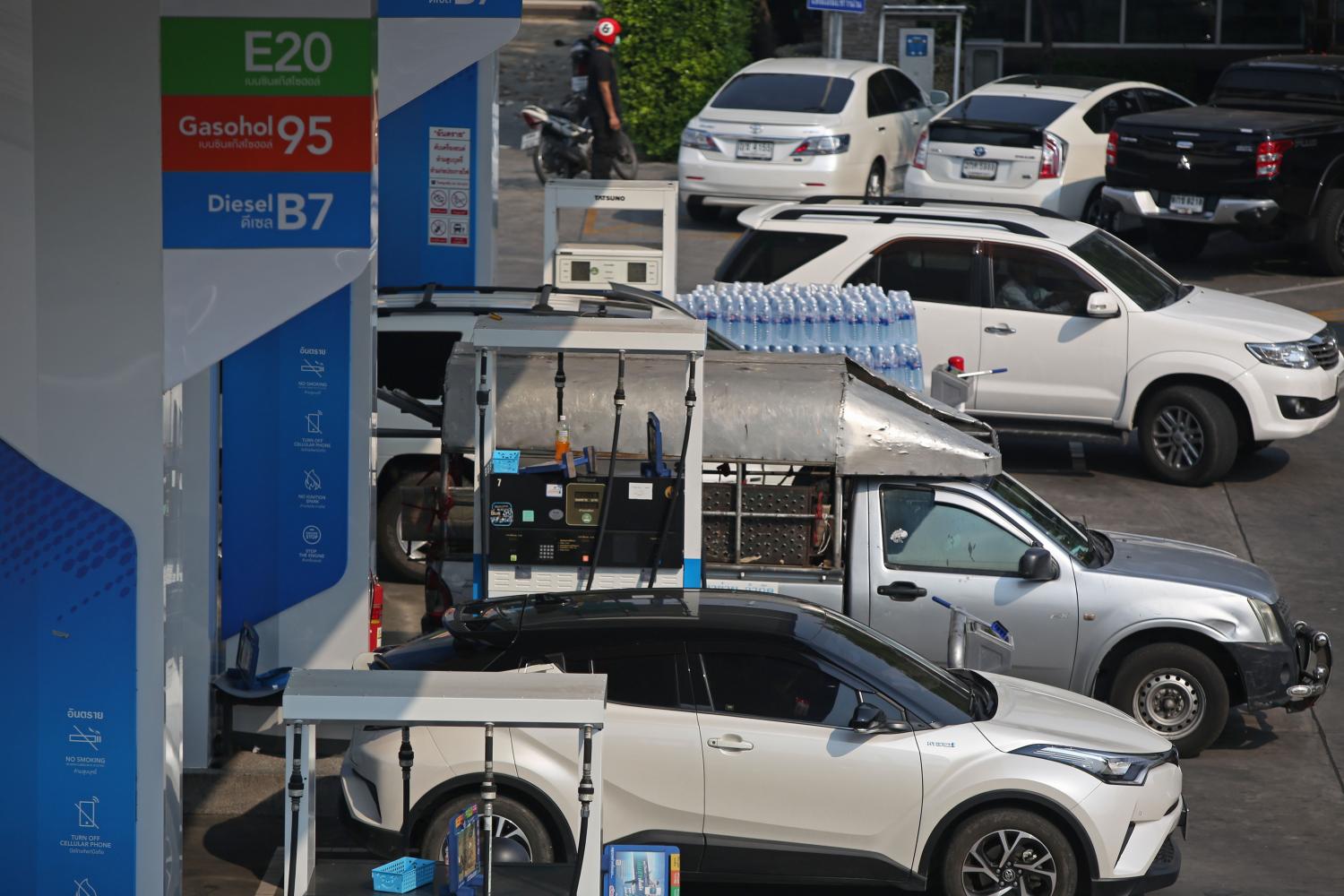
The Federation of Thai Industries (FTI) is calling on the government to temporarily waive the diesel excise tax to allow it to better manage borrowing to continue the diesel price subsidy programme.
The suggestion was made as energy policymakers admitted on Friday that diesel prices, currently capped at below 30 baht a litre, and liquefied petroleum gas (LPG) prices, which are fixed at 318 baht per 15-kilogramme gas cylinder, are likely to increase as subsidies from the Oil Fuel Fund are running low.
The ongoing subsidy programme is based on the Dubai crude oil reference price of US$100 a barrel, but global oil prices, which soared towards $130 earlier this week, look set to skyrocket as the Russia-Ukraine war shows no sign of abating.
If the government does not charge diesel excise tax, it will help control diesel prices, relieving its loan burden and allowing it to continue the subsidy, said Kriengkrai Thiennukul, vice-chairman of the FTI.
The Prayut Chan-o-cha administration earlier agreed to cut diesel excise tax by half for three months to cap its prices at below 30 baht a litre. Motorists are usually charged diesel excise tax at 5.99 baht a litre.
The measure is being used along with subsidies from the Oil Fuel Fund.
The Oil Fuel Fund Office (Offo) already spent 23 billion baht subidising diesel and LPG, which is used as cooking gas. It has only 7 billion baht in subsidies remaining and a loan of 10 billion baht, expected to be received soon, to support the fund.
Offo officials expect the fund to be used up in May.
"From April, we plan to reduce the LPG subsidy by increasing the retail price to 333 baht, up from 318 baht," said Energy Minister Supattanapong Punmeechaow.
"We are also looking for measures to cope with the higher price of diesel."
In the view of the FTI, eliminating the diesel excise tax is an option for the government if it wants to better manage its loans that support the Oil Fuel Fund, said Mr Kriengkrai.
"We understand the global situation and the government's burdens. The business sector is aware the subsidies will not last long," he said.
Representatives from 45 member industries in the FTI were urged to find measures to cope with the impact of the war.
Truck-pooling, using digital technology to increase energy efficiency and a shift towards renewable energy have been suggested, said Mr Kriengkrai.
"These measures can help save on energy costs by 10-20%," he said.







